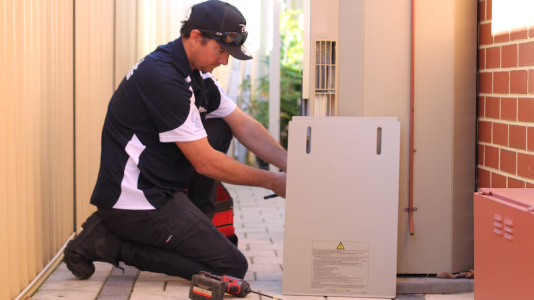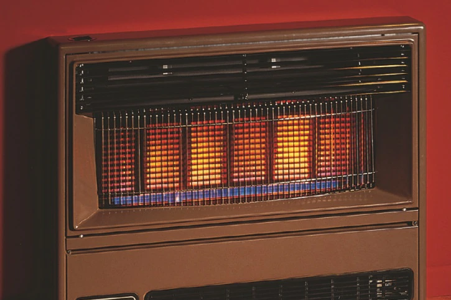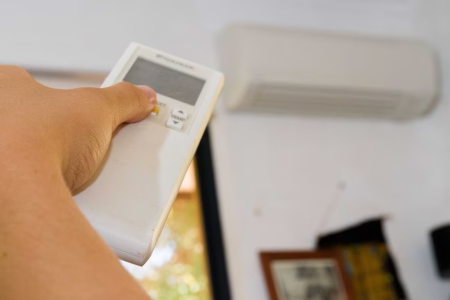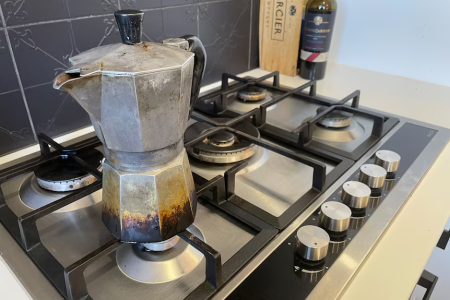Gas hot water systems to be phased out of Victorian homes under new energy reforms
By
ABC News
- Replies 0
Gas hot water systems will be phased out of all Victorian homes as part of the state government's plan to wean households off gas and prioritise dwindling supplies for industry.
However, the government has explicitly said there will be no changes to gas cooking or heating for owner-occupiers, following concerns that the Labor government intended to ban all gas appliances.
Earlier this year, the government's plan was to force households to replace gas heaters as well as hot water systems with electric appliances.
Labor had initially wanted to phase out gas cooktops as part of its gas transition roadmap too, but Premier Jacinta Allan last year ruled out changes to cooktops amid concern from industry and consumer groups.
The latest changes target hot water systems, but will also require landlords to replace gas heaters with reverse-cycle air conditioners once heaters need replacing.
The government said from March 1, 2027, gas hot water systems at "the end of [their] life" will need to be replaced with electric alternatives.
However, they can still be repaired if they break down and be reinstalled during renovations.
From 2027, all newly built homes will be permitted to have only electric appliances.
The reforms will also require all commercial buildings — excluding industrial, manufacturing and agricultural buildings — to be constructed as "all-electric" from the beginning of 2027.
The premier said the reforms would save families money and help redirect the state's gas resources to meet industrial demand.
"Families will pay less on their energy bills, industry will get the gas it needs — and Victorian jobs are protected," Ms Allan said.
Some Labor MPs, including some ministers, had privately expressed concern that the government's gas transition plan was too prescriptive and had opened Labor up to a scare campaign from industry and the state opposition.
Gas hot water systems and heaters in rental properties will need to be replaced with electric alternatives once they are beyond repair. Additionally, ceiling insulation must be installed if it is not already present at the start of a lease, and homes will require draught sealing at the beginning of each tenancy.
While living rooms in rental properties are already required to have heating, from March 1, 2027, they must also include an electric cooling system.
The government believes these changes will help the state avoid forecast shortages.
Victoria currently has the highest use of residential gas in Australia, at around 80 per cent of homes, according to the state government.
In 2021, the state government introduced its Gas Substitution Roadmap to encourage households to switch from gas to electric appliances.
The state's high gas use is at odds with its climate policy, with the state government hoping to hit its climate targets by supporting the "rapid electrification" of homes.
The state government said the gas sector contributed to 17 per cent of the state's emissions and the move to electricity was a key element of meeting Victoria's emissions reduction targets of 75 to 80 per cent by 2035 and net zero by 2045.
Environmental group Friends of the Earth Melbourne described the Victorian government's changes as "groundbreaking reforms" for the climate and household budgets.
"We love that the nearly one third of homes occupied by renters are prioritised, meaning that some of the most vulnerable households will see an early benefit in shifting away from expensive gas to more efficient hot water, heating and cooling options," said the group's No More Gas campaigner Freja Leonard.
But Ms Leonard noted that homeowners struggling with the cost of living would not be able to afford to switch their current gas appliances to electric ones.
"And as gas use declines, we are concerned for those who are unable to disconnect from gas being stranded on a decreasingly affordable fuel source with ever-rising access charges," she said.
The Energy Efficiency Council — a not-for-profit membership association that advocates for Australia's energy management sector — said the announcement would free up gas for industry.
But CEO Luke Menzel said he was disappointed the phase-out of gas space heaters in existing homes was being abandoned.
"Every Victorian with a gas bill landing on their kitchen table this winter knows how crazy gas prices have been getting," Mr Menzel said.
"We can't afford not to electrify our space heating in this state."
The Victorian Greens also criticised the move.
"We're disappointed that Labor backed down on their plans to remove dangerous, polluting gas heaters from Victoria. This will lock people into higher bills and more pollution," leader Ellen Sandell said.
By Peter Quattrocelli
However, the government has explicitly said there will be no changes to gas cooking or heating for owner-occupiers, following concerns that the Labor government intended to ban all gas appliances.
Earlier this year, the government's plan was to force households to replace gas heaters as well as hot water systems with electric appliances.
Labor had initially wanted to phase out gas cooktops as part of its gas transition roadmap too, but Premier Jacinta Allan last year ruled out changes to cooktops amid concern from industry and consumer groups.
The latest changes target hot water systems, but will also require landlords to replace gas heaters with reverse-cycle air conditioners once heaters need replacing.
The government said from March 1, 2027, gas hot water systems at "the end of [their] life" will need to be replaced with electric alternatives.
However, they can still be repaired if they break down and be reinstalled during renovations.
From 2027, all newly built homes will be permitted to have only electric appliances.
The reforms will also require all commercial buildings — excluding industrial, manufacturing and agricultural buildings — to be constructed as "all-electric" from the beginning of 2027.
The premier said the reforms would save families money and help redirect the state's gas resources to meet industrial demand.
"Families will pay less on their energy bills, industry will get the gas it needs — and Victorian jobs are protected," Ms Allan said.
Some Labor MPs, including some ministers, had privately expressed concern that the government's gas transition plan was too prescriptive and had opened Labor up to a scare campaign from industry and the state opposition.
Renters to receive greater protections
From January 1, 2027, rental properties will also be subject to higher energy efficiency standards under the new reforms.Gas hot water systems and heaters in rental properties will need to be replaced with electric alternatives once they are beyond repair. Additionally, ceiling insulation must be installed if it is not already present at the start of a lease, and homes will require draught sealing at the beginning of each tenancy.
While living rooms in rental properties are already required to have heating, from March 1, 2027, they must also include an electric cooling system.
Plan for 'rapid electrification'
Victoria is facing a looming natural gas shortage because supply traditionally taken from Bass Strait is running out.The government believes these changes will help the state avoid forecast shortages.
Victoria currently has the highest use of residential gas in Australia, at around 80 per cent of homes, according to the state government.
The state's high gas use is at odds with its climate policy, with the state government hoping to hit its climate targets by supporting the "rapid electrification" of homes.
The state government said the gas sector contributed to 17 per cent of the state's emissions and the move to electricity was a key element of meeting Victoria's emissions reduction targets of 75 to 80 per cent by 2035 and net zero by 2045.
Environmental group Friends of the Earth Melbourne described the Victorian government's changes as "groundbreaking reforms" for the climate and household budgets.
"We love that the nearly one third of homes occupied by renters are prioritised, meaning that some of the most vulnerable households will see an early benefit in shifting away from expensive gas to more efficient hot water, heating and cooling options," said the group's No More Gas campaigner Freja Leonard.
"And as gas use declines, we are concerned for those who are unable to disconnect from gas being stranded on a decreasingly affordable fuel source with ever-rising access charges," she said.
The Energy Efficiency Council — a not-for-profit membership association that advocates for Australia's energy management sector — said the announcement would free up gas for industry.
But CEO Luke Menzel said he was disappointed the phase-out of gas space heaters in existing homes was being abandoned.
"Every Victorian with a gas bill landing on their kitchen table this winter knows how crazy gas prices have been getting," Mr Menzel said.
"We can't afford not to electrify our space heating in this state."
"We're disappointed that Labor backed down on their plans to remove dangerous, polluting gas heaters from Victoria. This will lock people into higher bills and more pollution," leader Ellen Sandell said.
By Peter Quattrocelli











